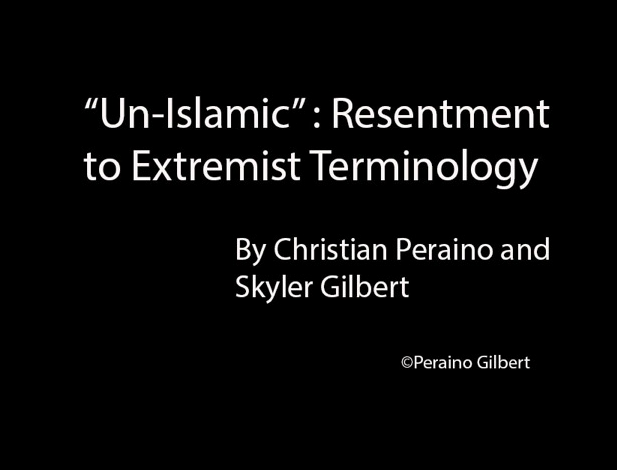
An entrance sign at the Islamic Center of Long Island, located in Westbury. Photo by Chris Peraino
By: Skyler Gilbert and Chris Peraino
Abdur-Rahman Partap’s coarse, black beard stands out in mostly white Long Island. To a point that, he says, he gets beeped at, and scorned on his drive to work. The niece of Habeeb Ahmed fears leaving her house in a hijab without her husband now. She has had her scarf pulled in public, and regularly receives dirty looks when wearing it. One woman, who wished to remain anonymous for her own safety, said that the day after the London attack, she got a phone call from an unknown number: “B***h, f**k you. Go back to your country,” the voice screamed from the other end of the line.
Hate crimes against the Islamic community in the United States are at their highest levels since 2001, according to FBI data. And, in the wake of London’s terrorist attack last week, the anti-Islamic rhetoric on Long Island has soared.
“When people say ‘go back to your country,’ what do I have to say to these people?” Ahmed, the vice-president of the Islamic Center of Long Island, asked. “This is my country. My son was born and brought up here. What gives you the right to talk to us, legal residents here, like that?”
Ahmed has noticed a double-standard in the way Muslims are treated after high-profile jihadist attacks.
“[When white people commit crime,] a report comes back to say that a shooter is mentally disturbed,” Ahmed said. “No Muslim is ever mentally disturbed if they do these things.”
Every time a terrorist attack happens, his heart races in anticipation of what could happen to him, his family and his community if the perpetrator claims to be a Muslim.
“I feel that subconsciously local Muslims [wait] after extremist events to settle down,” Hashaam Nasheer, a resident of Manorville, said. “They try to avoid anything that would cause attention to themselves or to Muslims in general.”
Shirley Masjib has upped its security in recent years after heightened discrimination both locally and around the world.
Negativity is not all that local Muslims experience, though it is pervasive.
“I’ve been in the grocery store and had a woman come up to me and apologize on behalf of her country and what’s going on and how Islam and Muslims are portrayed,” Abdul-Lateef Poulos, the Imam of Shirley Masjid, said.
Poulos believes the source of discrimination is American’s zero-sum take on immigration: equal rights for others are equated to a lost rights for the majority.
“I think there is a feeling of losing of power, culturally speaking, in America where what was once a monolithic culture, at least the dominant one, is being lost,” he said.
Other factors that have contributed, Poulos said, including media-generated stereotypes. Some of these ideations are so strong that they can creep into the thoughts of Muslims themselves.
Last June, during the Islamic holy season of Ramadan, Nasheer walked down the streets of Manhattan before the crack of dawn, 4 or 5 o’clock in the morning, wearing his white Thawb, a traditional Arabic robe. Through the early fog, he saw another man donning similar attire, with a black beard and a big bag.
“For a second, and just for a split second, I was a bit afraid,” he recalled. “Then I came to my senses.”
The phrase “Islamic terrorism” is also problematic, Ahmed says, due to its improper use of being a descriptor and emblem of a much larger group of people.
“Just call me a terrorist, don’t call me an Islamic terrorist,” he said. “Why do you need to bring a population of 1.6 billion into the picture. That’s a major problem.”
Ahmed, who as a Muslim born in India, says he has always faced religious discrimination and reaches out to other marginalized groups to find solace. He is friends with the brother of Marcelo Lucero, an Ecuadorian immigrant who was killed in a 2008 hate crime. Every anniversary of his death, Ahmed visits Lucero’s grave.
“This is the least I can do to pay my respects to this man,” Ahmed said.
Poulos added that one way to break the tension toward the Islamic community is to abolish the “us-versus-them” binary perspective of many ethnically Western Americans.
“If a view the world as ‘us’ and ‘them’ and you define ‘us’ as being Americans or Christians,” he said. “And the other as being Muslims, than that’s how you’re going to see the world and you’re not going to give those courtesies that you would to your own to the other.”
Despite the visceral attacks to his own people, Ahmed uses the teachings of Muhammad to remain hopeful for the future.
“[God] is going to take care of everyone, whether you’re a Muslim or Christian or a Jew or whoever you are,” Ahmed said. “Because he has created all of us.”

